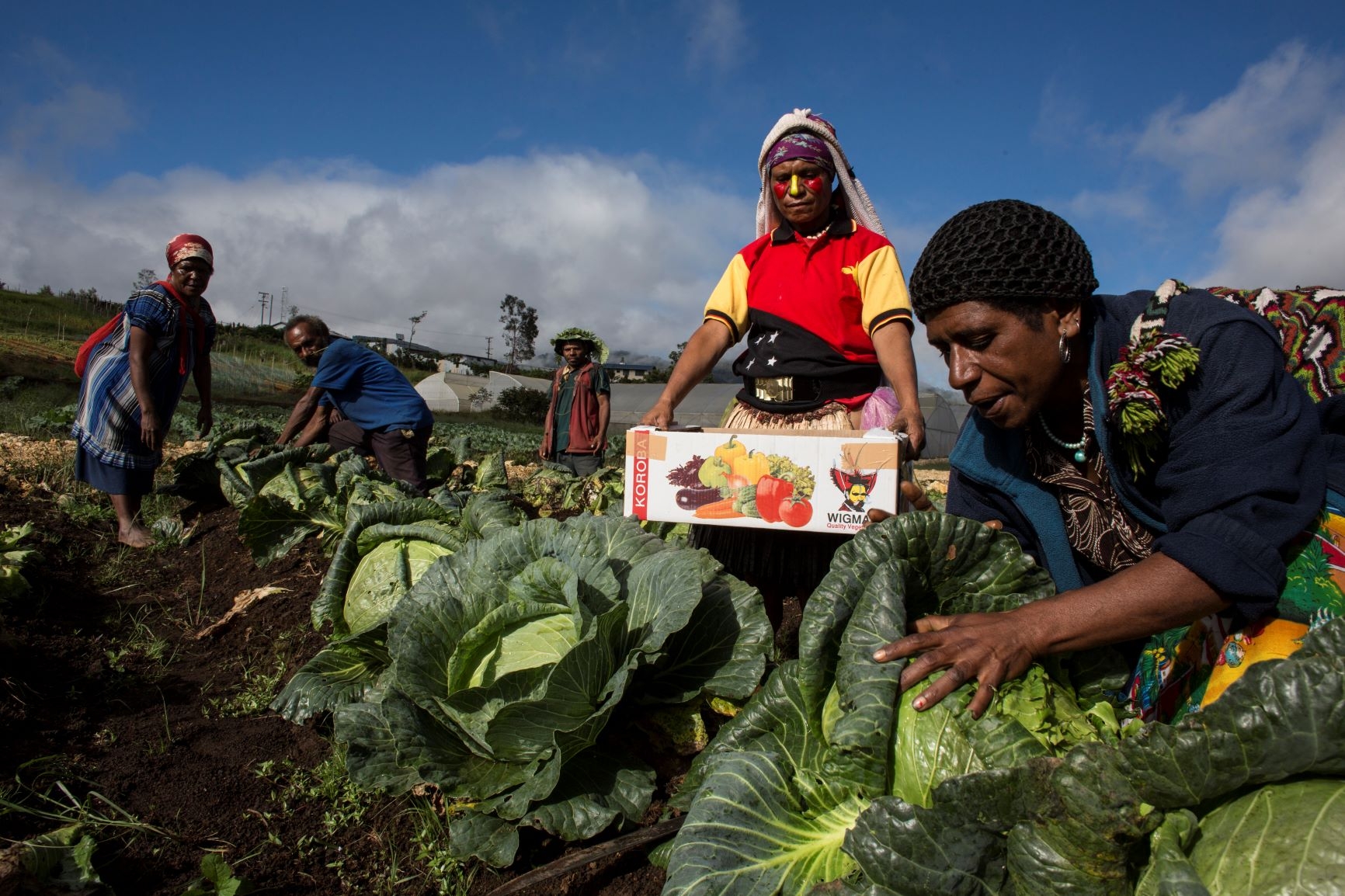Since a state of emergency was declared in PNG in late March, the demand for locally produced and fresh vegetables, fruits and milk has soared, according to Gallit Tamir, Business Development Manager, with Innovative Agro Industries (IAI). A shortage of imported fresh cream has brought forward IAI’s plans for a new assembly line to make up the shortfall.
Israeli-based IAI has been operating in PNG for nearly 10 years as a joint venture company with private sector and local level governments, developing modern and innovative vegetable and poultry product centres, a frozen vegetable processing unit in Southern Highlands and a dairy production farm at Ilimo in Central province.
The Covid-19 pandemic has impacted on IAI’s operations.
“Our activities in these times require more effort, social distancing in the work place requires us to limit the number of staff in each shift, at any time our farms keep industry best practices on food safety and quality under our food safety standards certification and protocols,” Tamir tells Islands Business.
“The safety and health of our staff is paramount, hygiene is closely monitored, body temperatures are taken regularly and close attention is made to monitoring symptoms of which none have been exhibited by members of our staff.”
What COVID-19 has proved is the value of the policy of import substitution and self-sufficiency.
In early April, Ilimo Farm received a call out from retailers, bakeries and caterers, saying that there is a shortage of imported fresh cream resulting from disruption of overseas supply chains due to the global lock downs.
“Though fresh cream was on the “drawing table” as a future product we did not plan to launch it just yet, however the call out from the market is that it is needed now,” says Tamir.
Working round the clock, staff built the assembly line within 10 days, ‘in incredible speed’.
The product has received excellent reviews from chefs around town, she says, and was made available firstly in limited quantities to institutional clients and major retailers.
Inter-provincial travel along the Highlands Highway was disrupted for a few days in March, but IAI’s farms and processing units around the country are back operating, and products are being moved with proper authorisations, she says.
Tamir regards the dairy production farm at Ilimo as a bench mark achievement, the first commercial dairy farm in PNG.
The farm has 175 hectares of cultivated land producing stock feed for 800 milking cows and a dairy processing plant, capable of producing 12,000 litres of milk per day, and aims to produce five million litres of milk, replacing about one-third of the country’s 14-million litres of imported dairy.
The K128 million farm just outside Port Moresby sells milk in Port Moresby and Lae for half the cost of imported milk. It now also produces ice-cream, yoghurt and dairy snacks and is building a second commercial dairy at Yalu in the Huon Gulf District at Morobe Province.
“This Project presents a holistic approach to a “Grass to Glass” enterprise,” she says.
“The farm represents the vanguard of a viable local dairy industry that will ultimately replace the need for imported fresh dairy products in PNG.
The farm has created 200 new jobs for PNG workers, as well as new cash cropping opportunities for Central Province Farmers to grow feed, such as maize, for our livestock, she says.
“Our farm has a solar farm onsite to supply additional energy requirements, we utilise a state of the art waste management system to decrease our environmental footprint as much as possible, and we use the latest in monitoring technology to ensure our herd is comfortable, stress free, happy and constantly monitored.”
A crucial benefit of this project is to enlarge the dairy consumption within locals, particularly children many of whom suffer from protein malnutrition, she points out.
IAI began its activities in PNG’s agricultural sector in 2011.
The company’s projects have generated over 1,000 new direct job opportunities employing Papua New Guineans of all walks of life, from university graduates, professionals to general staff.
“Our projects also engage hundreds of small-scale farmers that supply naturally grown vegetables, potatoes and stock feed, turning subsistence farmers into cash cropping farmers.”
Last December, the Pacific’s first frozen vegetable plant opened last year in Southern Highlands province, producing Kuk Chips, with the aim of replacing 4,000 tonnes of the French fries imported annually.
“Potatoes come from farmers in the district as well as the wider region, changing the livelihood of thousands of farmers in Southern Highlands, Enga, and Western Highlands.
KUK chips are sold to retailers and small shops and kai bars across the country, and to other institutional buyers including caterers, hotels and restaurants.
“The primary reason to engage in agriculture in PNG,” says Tamir, “are the Papua New Guineans.
“You can try and engage a Papua New Guinean on any subject on any matter and they may be interested or not, just like anyone else, but you mention agriculture to a Papua New Guinean and their eyes light up.
“Papua New Guineans have been doing agriculture for far longer than Europeans, it is something that is dear to their hearts. And even though they’ve have been farming for thousands of years, that hasn’t deterred them from accepting innovation.”
